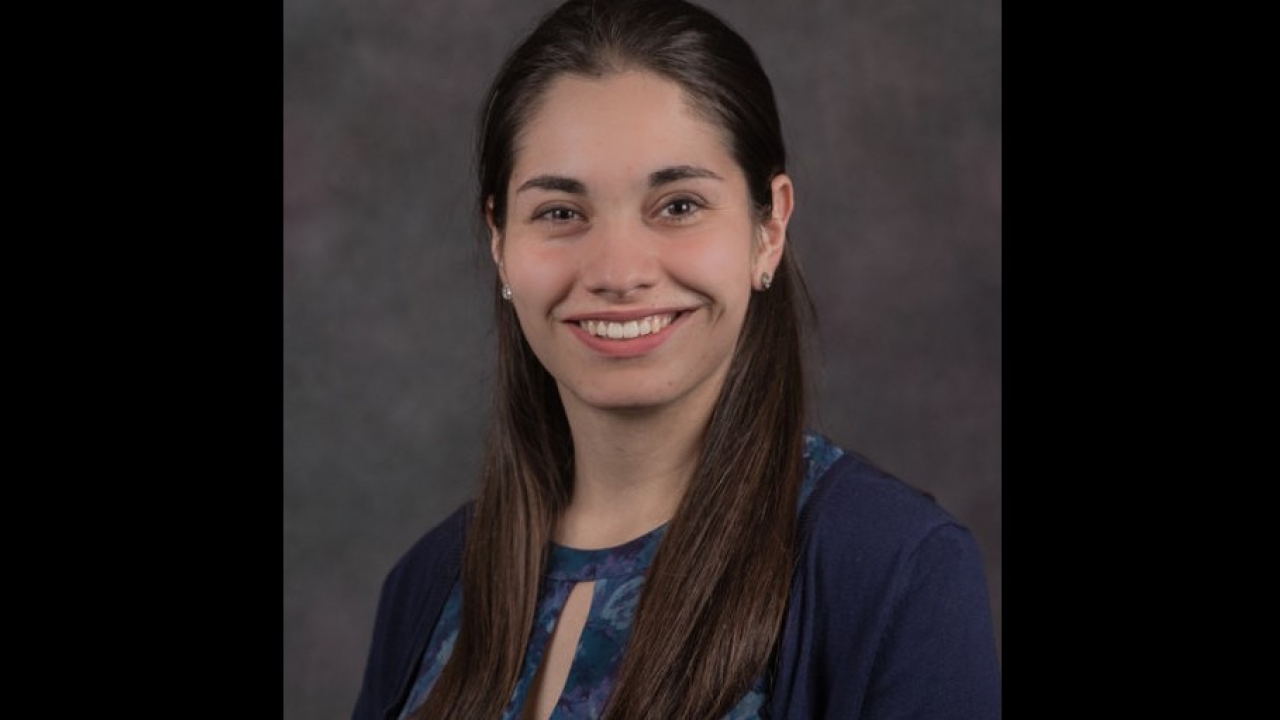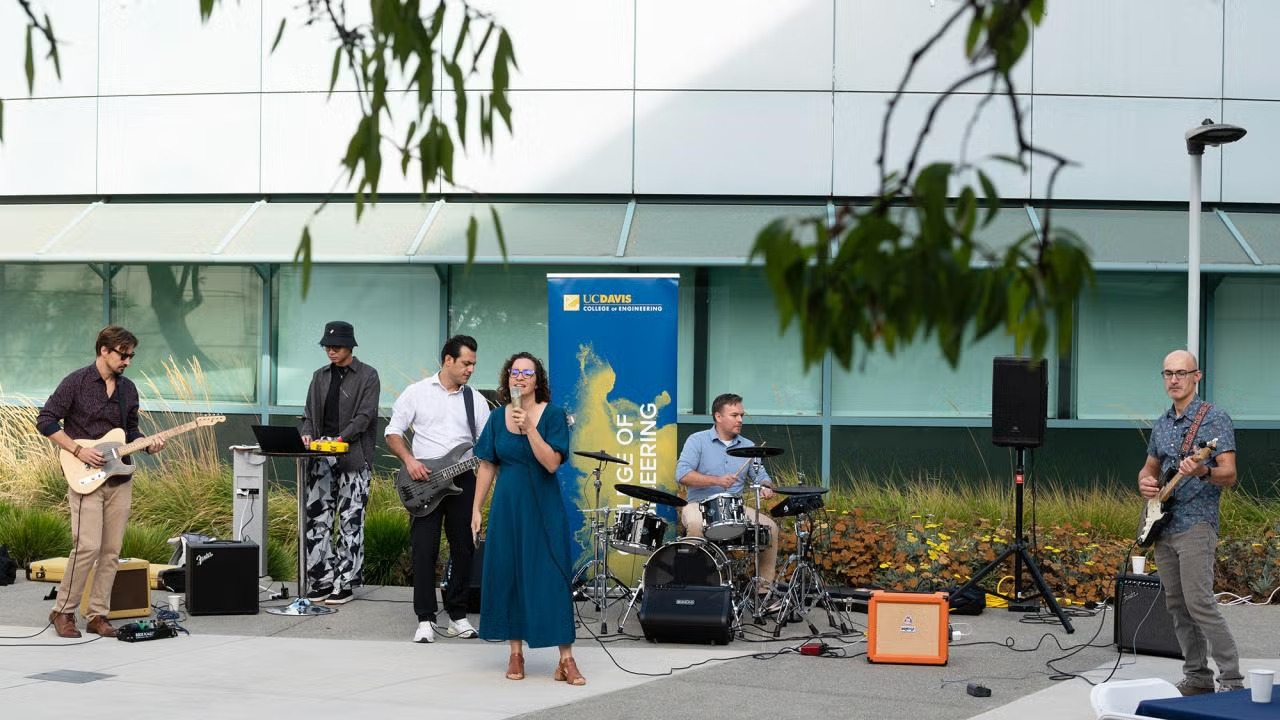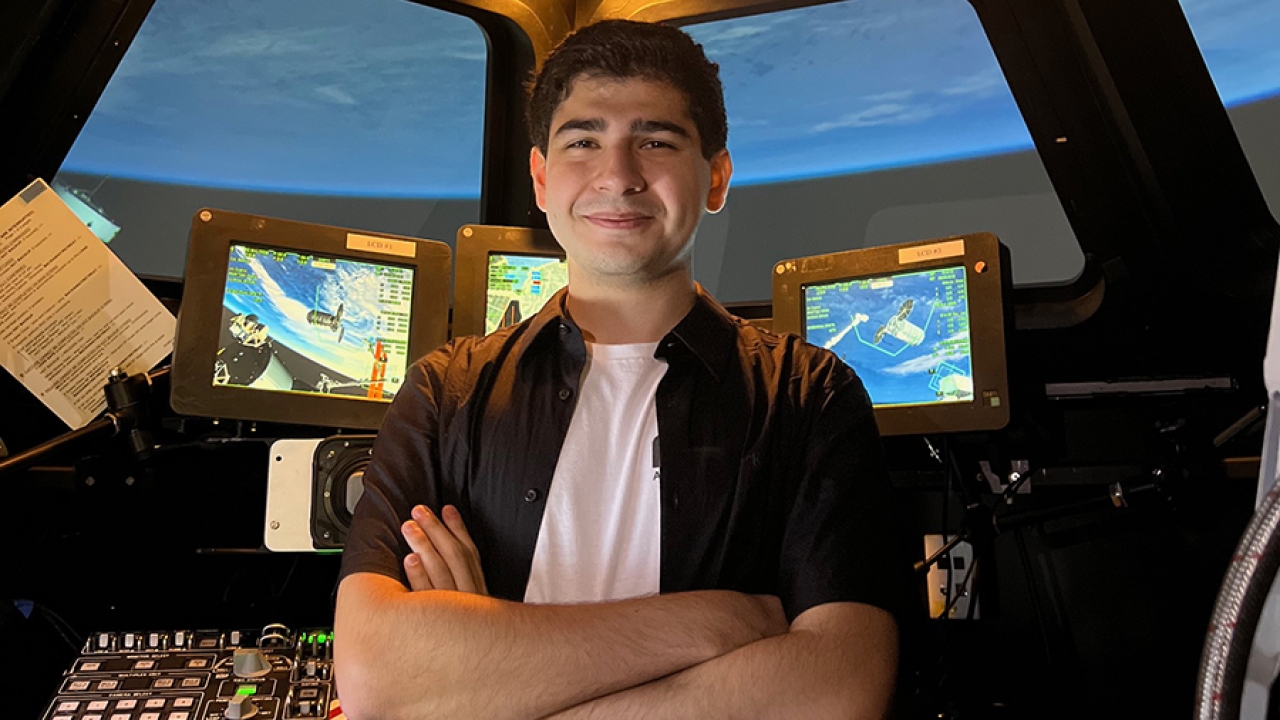
Marissa Gionet-Gonzales: Passionate to Serve
Marissa Gionet-Gonzales is a fifth-year Ph.D. student in the Department of Biomedical Engineering. Her research focuses on engineering biomaterials to enhance mesenchymal cell regeneration for bone and muscle repair. During her Ph.D., she served as a mentor and presenter for the California Alliance for Minority Participation program, founding a diversity, equity and inclusion journal club within her lab and serving on the department’s Health Equity and Wellness Committee. She also received the college’s first Excellence in Graduate Student Equity, Diversity and Inclusion Award earlier this year. Marissa hopes to continue these efforts and more during the next stage in her career as a postdoctoral researcher.
What initially drew you to the field of biomedical engineering and UC Davis?
I started my undergraduate research in a chemistry lab, which I enjoyed but wished was more translatable. I was excited to learn that my chemistry work in synthesizing and characterizing materials could be applied to the biomaterial field for clinical applications. Ultimately, the field’s diverse range of tools and applications and interdisciplinary nature drew me toward wanting to pursue a Ph.D. in biomedical engineering. I decided to pursue my degree at UC Davis as it offered many high-quality professors pursuing research in the biomaterial space, as well as a very friendly and collaborative environment among other graduate students.
What programs, organizations or resources at UC Davis do you recommend to other students? How did you leverage these resources?
For undergraduate students, I highly recommend getting involved in undergraduate research opportunities. Even if you do not want to pursue graduate school, getting research experience is a great way to gain unique skillsets and acquire excellent letters of recommendation. There are numerous programs at UC Davis to help fund undergraduate research as well, so you can even get paid for this work. I personally participated in the California Alliance for Minority Participation (CAMP) program, which provided me numerous resources and opportunities, without which I would not be where I am today.
I recommend not being afraid to use any of the resources advertised by the graduate program. Graduate school is hard for everyone and knowing that you do not have to deal with problems without resources and alone is extremely important. Whether it is a conflict with your PI or lab members, or if you are struggling with mental health, there are a variety of resources and support networks to turn to.
Tell me about your experience as a graduate student at the UC Davis College of Engineering.
I have had a very positive experience pursuing my Ph.D. at UC Davis. There is a very strong culture among the graduate students in the biomedical engineering department to collaborate and help each other succeed. I personally thrive better in a collaborative versus competitive environment and believe this has significantly helped me throughout my degree. I have been able to learn so many new things, both through troubleshooting on my own and through relying on the insight and knowledge of others. There are obviously many challenges I faced while pursuing my degree, but watching my hard work come to fruition has been very exciting.
Please tell me about your efforts around diversity, equity and inclusion and what motivates you in this work.
The CAMP program had a significant impact on my career trajectory and funded my undergraduate research, making me a competitive candidate for graduate school. Therefore, I have a strong passion for mentoring and giving back to the minority community anyway that I can. As an undergrad, I served as an officer in the CAMP program at UC Riverside and helped broadcast the organization to all eligible students. When I first started at UC Davis, I immediately got in contact with the UC Davis CAMP program to help. I have served on numerous panels, given guest lectures and been a peer mentor for minority students throughout my time at UC Davis. I have also served on my department’s Committee on Equity, Health, and Wellness and have started a Diversity, Equity and Inclusion journal club within my own lab.
Having groups of people from diverse backgrounds working on a problem allows for more innovative and effective solutions. Data have shown underrepresented groups are shown to produce higher rates of scientific novelty. However, academia has a history of pushing minority groups unfairly out of the research space and unrecognizing, devaluing and discounting the work they produce. We have already likely lost so many amazing scientists and discoveries to this toxic culture. Pursing and funding DEI efforts allows us to find the underlying causes and implement solutions to fix it.
Were there any connections you found at UC Davis that helped you along the way?
I have made many friends in my lab and department that have helped me immensely during my Ph.D. My colleagues are always willing to give me advice and help me troubleshoot my research, which I very much appreciate. I have also been fortunate to have met several faculty mentors during my degree who have given me valuable feedback and advice that have significantly improved my work.
What do you like to do in your free time?
I have always enjoyed hiking, which I have had the opportunity to do up here in Davis quite a bit. Some of my favorite hikes are in Point Reyes and Berryessa. Since coming to Davis, I have also gotten into bouldering and rock climbing with some of the other graduate students which has been a fun break/exercise away from research. I also like watching horror movies, painting and photography.




